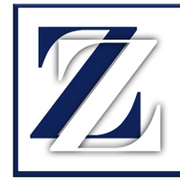A Guide to Dischargeable vs. Non-Dischargeable Debts in Bankruptcy

Thousands of Americans turn to bankruptcy each year as a way to eliminate overwhelming debts and regain control of their finances. However, not all debts are eligible for discharge. As such, before determining the right solution for your situation, it’s important to understand what kind of debts you carry and how that will affect your Chapter 7 or Chapter 13 bankruptcy filing. Here's a closer look at this aspect of debt forgiveness.
What Debts Can Be Discharged?
The law allows general, unsecured debts to be discharged in both Chapter 7 and Chapter 13 bankruptcy. In other words, once your case has been resolved, you’ll no longer be responsible for repaying your creditors. Typically, these include medical bills, credit card bills, personal loans, past-due utility bills, lawsuit judgments against the debtor, and many debts related to a business. Certain secured debts, such as mortgages and auto loans, can also be discharged if you don’t intend to maintain ownership of the property. Student loans are not dischargeable under either chapter 7 or Chapter 13.
Some debts may only be wiped away when filing Chapter 13 bankruptcy. These include timely filed but unpaid taxes and non-support type domestic obligations. This latter category is not applicable to spousal or child support.
What Debts Aren’t Dischargeable?

When a debt is non-dischargeable, you’ll still have to repay it even after your bankruptcy case is complete. Examples include child support, alimony, criminal fines, and penalties accrued for causing a personal injury while driving under the influence. Creditors can also argue against the discharge of debts brought on by illegal acts or willfully malicious behavior.
Student loans and recently incurred taxes are types of debt that aren’t generally dischargeable but may be eliminated if specific criteria are met. For student loans, the debtor must demonstrate that repayment would cause them undue hardship. Tax debts can be discharged if they are at least three years old, the return was filed on time, and they weren’t incurred as the result of fraud.
If you’re looking to get a fresh financial start, turn to Zellar & Zellar Attorneys At Law Inc. With locations in Newark, Zanesville, and Lancaster, OH, this firm is backed by over 55 years of experience and a proven track record for helping clients successfully achieve debt relief. They’ll take the time to analyze your unique circumstances and determine whether Chapter 7 or Chapter 13 bankruptcy is best suited to your needs. Call (614) 257-1643 to schedule a free consultation or visit them online to learn more about the firm.
This article is intended to provide general information and should not be construed as legal advice or in creating an attorney-client relationship.
About the Business
(13 reviews)
Have a question? Ask the experts!
Send your question

